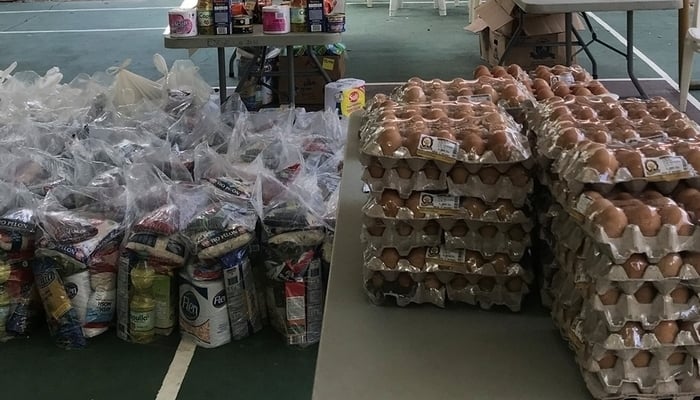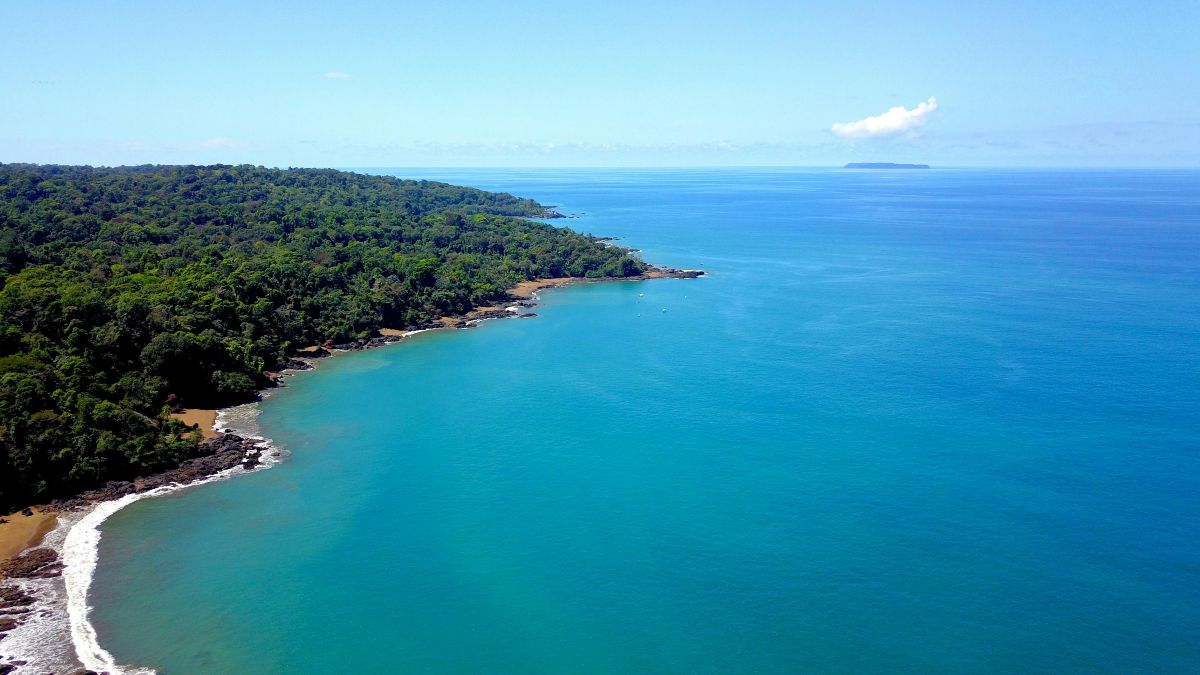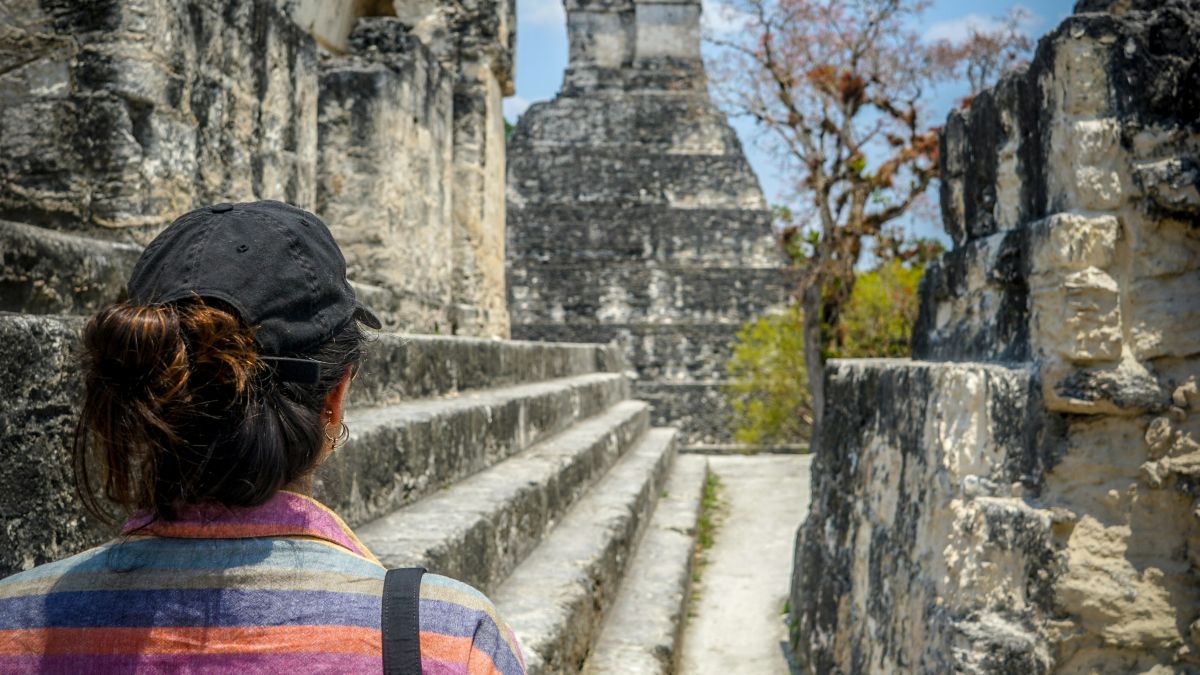As the economic impact of the coronavirus pandemic bites harder and deeper, existing charities and organizations are pivoting away from their original projects to more pressing concerns like feeding people. Here’s how Recycle Hermosa, in Playa Hermosa, Costa Rica is doing just that.
There are many ways to say beautiful or pretty in Spanish. It’s an expressive, romantic language, after all. A language of love. You can say bonita, linda, guapa, bella… and that’s for starters. English has a bunch of words as well to describe attractiveness or beauty, but the concept always sounds better in Spanish.
And then there’s the word “hermosa”. It’s probably the most expressive one of all, indicating pure gorgeousness. If someone or something is hermosa (or hermoso), it means they’re gorgeous.
That goes for the beaches in Costa Rica, too.
Anyone who knows Costa Rica knows how many gorgeous beaches exist down here. It’s one of the reasons why Costa Rica’s tourism industry is so strong. They use the word hermosa a lot to describe the beaches in CostaRica.
One Playa Hermosa is on the Central Pacific coast south of Jaco. It’s one of Costa Rica’s main surfing beaches and hosts international competitions every year. The other Playa Hermosa is slightly less well-known, but no less, well, hermosa.
You’ll find this Playa Hermosa in Guanacaste, close to Liberia Airport, tucked between Playas del Coco and Playa Panama.
Playas del Coco and the nearby Papagayo Peninsula are the main tourist destinations in this area, leaving Hermosa as an oasis of calm; a relaxing, quieter beach.
Like most beach communities in Guanacaste, Hermosa was once a small fishing village, isolated and poor before the tourists came. Now it’s a bustling little town on a beautiful beach, more chilled than nearby Coco but perfect enough for a vacation. It’s a family beach, with soft sand and calm waters.
Playa Hermosa’s entire economy relies on tourism. And now, like the rest of Guanacaste’s beach communities since tourism stopped, it’s in big trouble.
“The impact on Playa Hermosa has been devastating,” says Pamela Lewis from Recycle Hermosa, a local environmental organization.
“COVID has literally wiped out the town’s entire tourism industry. No guests, no work, no money. Every single hotel and restaurant is now closed with a few small exceptions. That means every single employee in the 14 or so hotels and the 25 restaurants here are unemployed with no end in sight. It’s really bad. People are hungry and penniless.”
Lewis first came to Costa Rica in 2000 on a one-year work assignment in San Jose and made the full-time move in 2007.
She settled in Guanacaste and has, in her words, been running cool and interesting projects ever since. She’s worked as a travel agent, owned her own property management and vacation rental company, and more. She currently owns a vacation rental in Playa Flamingo.
“This crisis has completely wiped out my income source as well,” she says. “We’re all in the same storm.”
In January 2019 Lewis helped found Recycle Hermosa to help reduce trash in Hermosa through responsible recycling solutions, local education, and community participation. The core of Recycle Hermosa is all about education. They host events at local schools to teach kids about the importance of their local environment.
Recycle Hermosa supports its efforts by selling hi-quality, insulated beverage bottles and other retail items. “Buy a bottle. Teach a kid. Save the planet!” goes their slogan.
On March 16, Costa Rica closed its borders and its economic crisis started. By March 28, it was clear to Lewis that Recycle Hermosa needed to pivot in the immediate term to help its neighbors.
The FOOD for HERMOSA program, as she called the new project, was a clear extension of the work Recycle Hermosa already did. She already had a community volunteer program in place so it made things easier.
She also received a call from a long time associate of hers, Bernal Mata, from local company Tico Tours Guanacaste. He too wanted to help his community. FOOD for HERMOSA then became a joint effort between Recycle Hermosa and Tico Tours Guanacaste.
FOOD for HERMOSA also started working with local Liberia-based craft brewery NUMU who now donate 10% of their sales to the cause.
Many tourism workers in Hermosa operate on the fringe.
They don’t work in hotels or restaurants or travel agencies. They have simple livelihoods selling crafts, running fishing tours, working as parking attendants, or in food kiosks. Much of this work is in the cash economy and most of these people have zero access to any sort of government aid.
That’s the main issue on the beaches of Costa Rica during this crisis – the lack of government aid coming through and the amount of people falling through the cracks. It’s feasible for hotel and restaurant workers to apply for government help, but it’s very slow to arrive and people need to eat every day.
This is where some structured organization to help those most in need matters the most.
“Our strategy is based on private funding and really good organization,” says Lewis.
“From the very start we established a solid ordering, logistics, distribution, and tracking system to ensure our donor’s monies are used for the exact and sole purpose intended – feeding people.
“We’re also assisting in nearby Playa Panama and Sardinal. There’s so much need, we don’t want to say no to neighboring towns, so we help others as much as we can. Hermosa is small town compared to neighboring towns like Sardinal. We want to help our neighbors too but we barely have enough to support Hermosa.
“We clearly need additional and continuous donations to keep up the demand, which we expect will be for many more months.
“Between Recycle Hermosa and Tico Tours, we have a strong base of advocates and allies to seek funding from. But it’s always a challenge to continually go to the same generous people for help. The need is huge!”
FOOD for HERMOSA distributes food packages to local areas twice a month.
They operate a qualification process to ensure food gets where it’s needed most. Each food package includes dry goods, fresh veg, eggs, and some personal care items. Lewis says the cost of feeding a family of four is 25,000 colones (a little under $50) per distribution. With two distributions a month for around 90 families (over 400 people), it’s easy to see how the cost can add up.
Lewis doesn’t see tourism returning to Playa Hermosa for a long time, at least not on the same scale it was before.
Costa Rica isn’t letting in foreign tourists until at least the end of June, and chances are it’ll be a while longer than that. Things also depend on how the pandemic plays out abroad. So FOOD for HERMOSA also plans to work on community programs for everyone who’s lost their incomes.
“People will need to learn new skills and we’ll need to reinvent opportunities for work,” she says.
“At the rate we’re going, it’ll be a while before the tourism industry ever gets back to “normal” – if ever. Now’s the time to reset, renovate and reinvent for the life of our communities and beyond.”
James Dyde is the editor of www.centralamerica.com. He lives in Escazu, Costa Rica.




